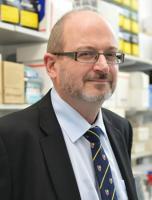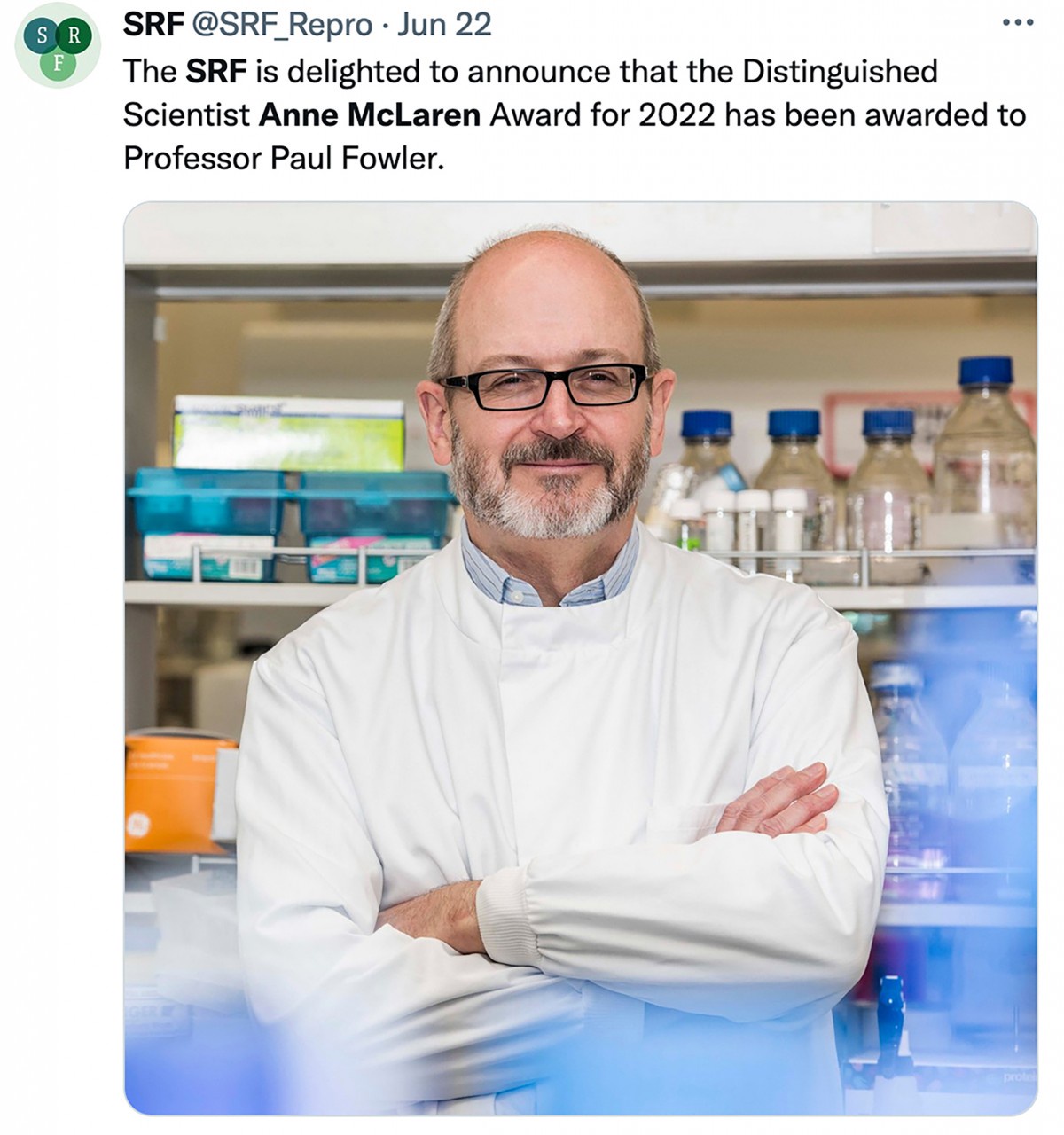Funding and Grants
Career total = £28 million
major grants:
2007-10 Wellcome Trust (080388) Effect of in-utero exposure to environmental chemicals via maternal pasture ingestion on fetal development. £426k [PI: collaboration with Macaulay, Edinburgh, Glasgow & INRA]
2008-12 European Commission FP7 (212855) Reproductive effects of environmental chemicals in females (REEF). £2,646k. (PI: collaboration with Macaulay, Edinburgh, INRA, Nottingham, Martin-Luther, Milan]
2009-11 Chief Scientist Office (CZB/4/742) Bioincubator system to model toxic effects on the human fetal testis. £62k [PI]
2014-17 MRC (L010011/1) The human fetal liver: development and response to maternal drug use. £589k [PI: collaboration with Glasgow, Edinburgh]
2014-18 MRC DTP (K501335/1) Development of the human fetal adrenal gland and effects of maternal smoking. £63k [CoI: Bellingham, Glasgow is PI]
2016-19 Glasgow Children’s Hospital Charity (YRSS/PHD/2016/05) Maternal smoking, drinking and deprivation: when and how of placental damage. £60k [PI: collaboration with Glasgow]
2017-21 European Commission H2020 MSCA-ITN (722634) PROTECTion against Endocrine Disruptors; detection, mixtures, health effects, risk assessment and communication (PROTECTED). £3,152k [CoI: Connolly Queen’s Belfast is PI]
2017-20 MRC (L011535/1) Sex-specific disease aetiology from developmental steroid insults: mechanistic understanding and biomarker development towards disease prevention. £637k [CoI: Rae, Edinburgh is PI]
2017-21 BBSRC EASTBIO DTP Mechanisms via which the human fetus is at risk from over-the-counter analgesics. £97k [PI: collaboration with Edinburgh]
2018-21 Arthritis Research UK (21800) Unlocking the joint morphogenetic code in mesenchymal stem cells from human synovium. £328k [CoI: De Bari is PI]
2019-24 European Commission H2020 (825100) Female Reproductive toxicity of Endocrine disrupting chemicals (EDCs): a human evidence-based screening and Identification Approach (FREIA). £5,217k [CoI: van Duursen, VU Amsterdam, is PI]
2022-25 Cunningham Trust (PhD-CT-21-18) Discovery of retinoic acid receptor control of stress granules as a treatment for neurodegenerative diseases. £97k [CoI: Mccaffery, Aberdeen, is PI]
2022-25 BCUK (2122029) Evaluating the effects of BPA on breast cancer development. £99k [CoI: Speirs, Aberdeen, is PI]
2022-25 MRC (MR/W015439/1) Towards a novel treatment targeting obesity in women with polycystic ovary syndrome. £380k [CoI: Duncan, Edinburgh, is PI]
2022-29 European Commission, Horizon Europe (10045444) Partnership for the assessment of risks from chemicals (PARC). €400 million cofund [CoI: ANSES+199 other institutions/agencies]
2023-27 European Commission, Horizon Europe (101094099) Inflammation in human early life: targeting impacts on life-course health (INITIALISE). £6,209k [CoI: Oresic, University of Turku is PI]



